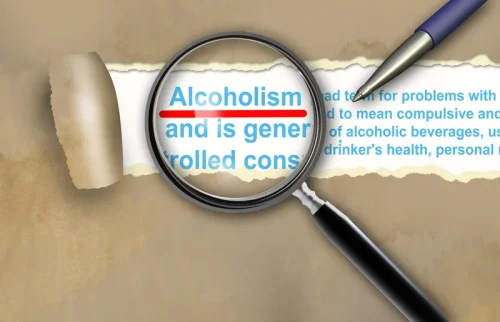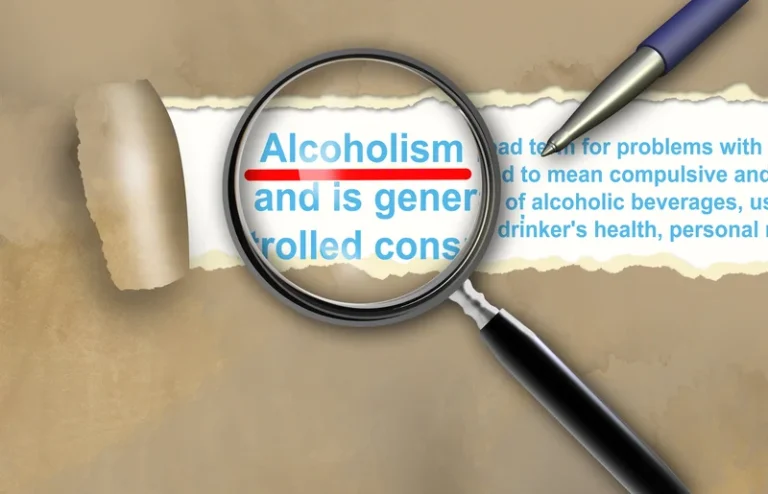
This can also elevate the risk for stomach side effects such as ulcerations and bleeding. Acetaminophen and NSAIDs are available individually and in combination with other cough, cold and allergy products. They can also be found in prescription medications, sometimes combined with other types of pain relievers like opioids (narcotics). If you manage your high blood pressure with prescription medication, saying no to alcohol is extremely important. When alcohol use is combined with multiple medications, it may magnify these problems. Older adults don’t metabolize alcohol as quickly as younger adults do, so alcohol stays in their systems longer and has a greater potential to interact with medications.
How to Recognize Polysubstance Abuse
- Always review your medications (prescription, over-the-counter, vitamins, herbal or dietary supplements) with a doctor and pharmacist and ask them to screen for any possible drug interactions.
- Mixing prescription drugs such as antidepressants, sleep aids, or antipsychotics with alcohol can reduce medication effectiveness or cause harmful side effects.
- A number of experts have recommended revision of the guidelines toward lower amounts, as more studies have linked even moderate alcohol consumption to health risks.
- In addition, herbal sleep remedies, like chamomile, valerian, and lavender, can cause increased drowsiness when mixed with alcohol.
Understanding the risks and seeking help early are essential steps in breaking the cycle of addiction. At Greater Boston Addiction Centers, we provide the tools, support, and compassionate care needed to overcome addiction and build a healthier, more fulfilling life. Any herbal product or dietary supplement that leads to drowsiness or dizziness may interact with alcohol. Avoid or limit the use of alcohol while using herbal or dietary supplements for sleep, unless approved by your doctor. Always check Sober living house with your pharmacist for possible drug or food interactions.
Blood clot medications
- Taking two drugs that affect the body in similar ways can compound their negative effects and lead to dangerous health issues.
- Here are some common antibiotic and antifungal medications that can potentially have worse side effects when mixed with alcohol.
- If you’re taking medication, always consult with your doctor or pharmacist if you think you might want to drink any alcohol.
- How these medications work are all somewhat different, but almost all of these medications in some way decrease a person’s level of consciousness and can cause serious side effects when mixed with alcohol.
- Avoid driving, operating machinery, or engaging in potentially hazardous activities requiring mental alertness and motor coordination until you know how the medication affects you.
Here, we describe briefly how alcohol and medications can interact, and we provide a few examples of common medications that could interact negatively with alcohol. We provide links to resources to help you mitigate these risks, including a consensus-developed list of potentially serious alcohol-medication interactions in older adults. Using alcohol with medications used to treat heartburn, both prescription and over-the-counter, can cause tachycardia (rapid heartbeat) and sudden changes in blood pressure. These drugs can also make the effects of alcohol more intense, leading to impaired judgment and sedation. If you have diabetes, drinking alcohol can affect your blood sugar levels.
- Combination OTC sleep products can also contain pain medicines like acetaminophen (Tylenol PM) or ibuprofen (Aleve PM), which may increase your risk for excess doses of those medicines.
- Older adults (especially those who take more than one medication) are also more likely to experience problems, as the ability to clear both alcohol and drugs from the body is reduced with age.
- Mixing substances often exacerbates anxiety, depression, and other mental health conditions.
- So always check with your doctor or pharmacist before you start your course of antibiotics if it is OK to have even one drink or not.
- Because of this, they do not metabolize alcohol as efficiently, putting them at greater risk for high blood alcohol levels after drinking the same amount of alcohol as a man.
Acetaminophen Interaction with Alcohol
Antipsychotics may be prescribed for people with conditions such as bipolar disorder or schizophrenia. John C. Umhau, MD, MPH, CPE is board-certified in addiction medicine and preventative medicine. For over 20 years Dr. Umhau was a senior clinical investigator at the National Institute on Alcohol Abuse and Alcoholism of the National Institutes of Health (NIH). Cough syrup and laxatives may have some of the highest alcohol concentrations. No content on this site, regardless of date, should ever be used as a substitute for direct medical advice from your doctor or other qualified clinician. By contrast, another 2023 study found similar rates of death between nondrinkers and light to moderate drinkers.
The use of alcohol and pain medications like narcotics together can slow or stop breathing (respiratory depression) and may be deadly. Examples of common opioids include codeine, oxycodone, morphine, methadone, fentanyl, and hydrocodone. They do not require a prescription from your doctor, but can still have important risks when combined with alcohol.
Muscle spasm medications
After drinking the same amount, people assigned female at birth tend to have higher blood alcohol levels than their male counterparts. In addition, the older we get, the more likely we are to be taking one or more medications that could interact with alcohol. Alcohol and medicines can cause harmful effects even if they’re not taken simultaneously. Sometimes, you can drink a few hours after taking a medication, other times you’ll need to wait a few days or longer. If you had an alcoholic beverage and are not sure if you should take an OTC pain reliever, you can ask a local pharmacist or primary care provider if it is safe to do so. Mild liver inflammation can occur in about 2% of people who take https://ecosoberhouse.com/ statins for a long time.

A 2006 Harvard study found that moderate alcohol use did not have a significant negative effect on the livers of men taking statins mixing alcohol and drugs causes an effect called after heart surgery. Drinking even a small amount of alcohol while taking an antibiotic called Flagyl (metronidazole) can cause a severe reaction, making you extremely sick with nausea and vomiting. You will want to avoid alcohol for three days before you start and after you stop Flagyl. Angina (ischemic chest pain) is caused by reduced blood flow to the heart. If you have angina, you might be prescribed a medication called nitroglycerin.
- The list of possible drug and alcohol interactions is not complete.
- Because of this, it’s very difficult to predict the side effects of using both MDMA and alcohol.
- These limitations make it hard to know how much to rely on studies that find health risks (or benefits) to alcohol consumption.
A study by Ekors and colleagues noted that over 80% of people worldwide use some type of supplement. Many of these products are not regulated by authorities or monitored by a patient’s healthcare provider, and the potential for drug interactions is often unknown. The use of alcohol with alternative medications should always be cleared with a provider first.
Types of alcohol-medication interactions

You might also be advised to avoid alcohol for up to 72 hours after finishing the course. And whether you’re taking any medication or not, it’s important to stick to the UK Chief Medical Officers’ low risk drinking guidelines. This means no more than 14 units a week, whether you’re male or female, spread over three or more days, with several drink-free days every week – and no bingeing. If you do want to drink alcohol while being on medication, discuss it with your doctor or pharmacist first.

Diabetes Medications

Opioids, benzodiazepines, stimulants, marijuana, and certain prescription medications are particularly dangerous when combined with alcohol. At Greater Boston Addiction Centers, we offer compassionate, evidence-based treatment tailored to your unique needs. Whether you’re seeking alcohol rehab, drug treatment in Boston, or comprehensive substance abuse treatment, we’re here to support your journey to recovery.
 berendobengkulu.com Pedoman Informasi
berendobengkulu.com Pedoman Informasi